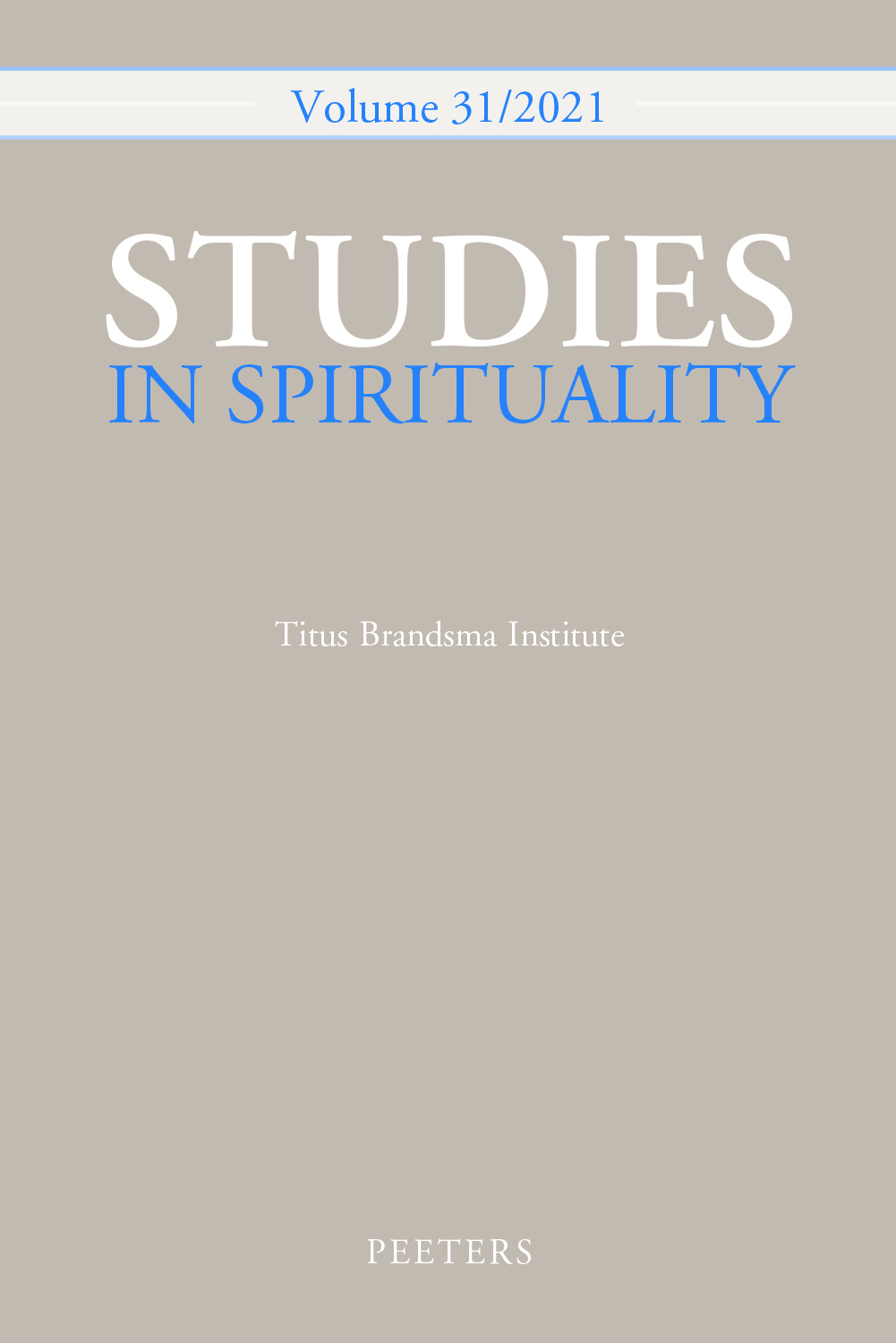 previous article in this issue previous article in this issue | next article in this issue  |

Preview first page |
Document Details : Title: Friedrich von Hügel's Ethical Mysticism Author(s): JOHNS, David L. Journal: Studies in Spirituality Volume: 12 Date: 2002 Pages: 203-216 DOI: 10.2143/SIS.12.0.505321 Abstract : Friedrich von Hügel (1852-1925) insisted upon the need for 'friction' between various components of a comprehensive spiritual anthropology. The 'mystical element', the experiential dimension of human existence, must be balanced and in conversation with the 'intellectual/scientific' element as well as with the 'historical/institutional' element. These (three 'soul forces' extend beyond any specifically religious context to inform von Hügel's understanding of ethics. This article examines how the notion of consciousness unifies Hügel's ethics and spirituality. His inclusive spiritual vision textures his moral thought and is foundational in his critique of both Immanuel Kant and the theology of the Catholic theological manuals. Rejecting these established, recognized, foundationalist authorities he turns instead to the lives of saints. Anticipating later developments in narrative theology and ethics, Hügel's inclusive vision refutes Kant's assertion that piety and subjectivity compromise ethical integrity. |
|


